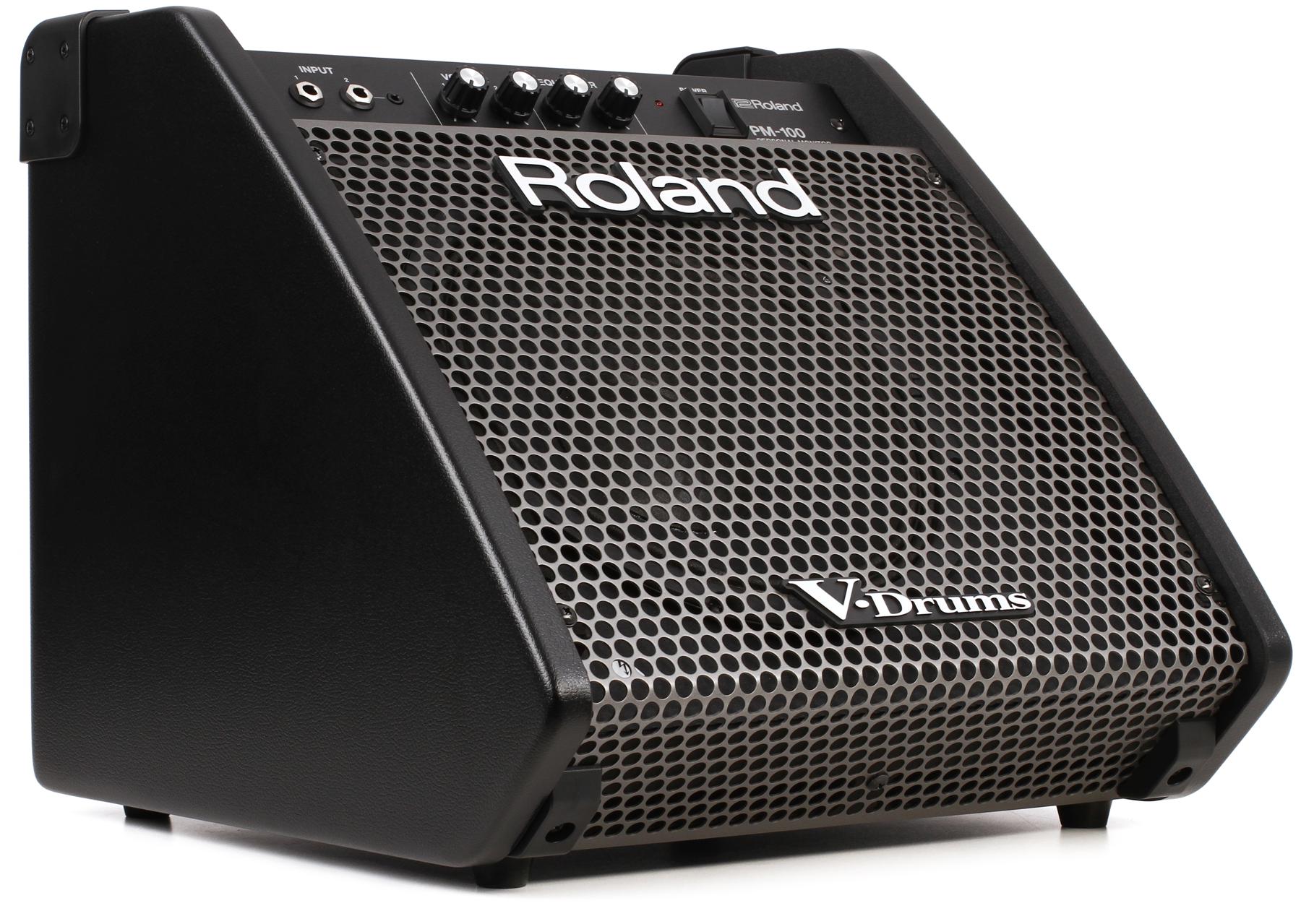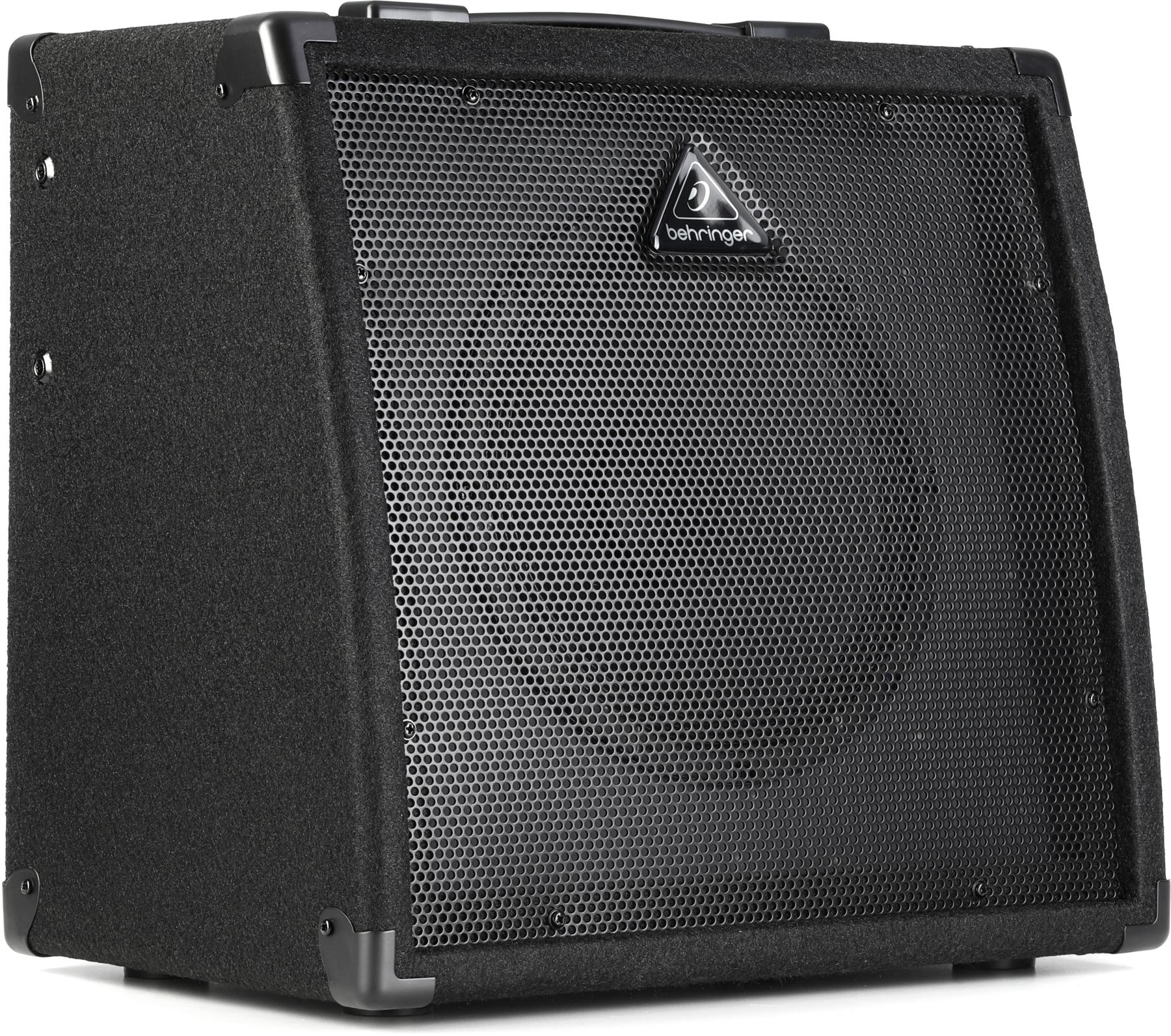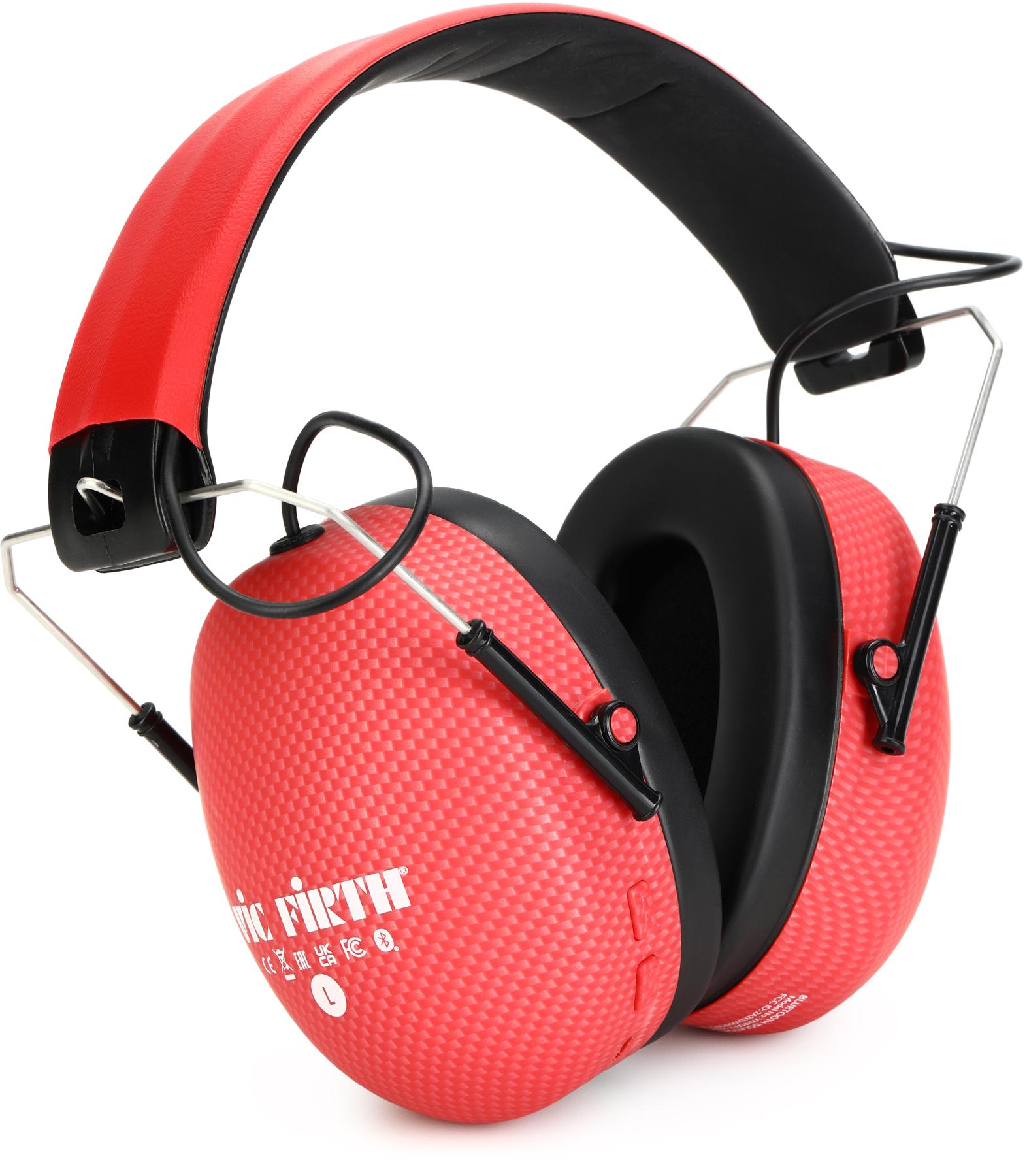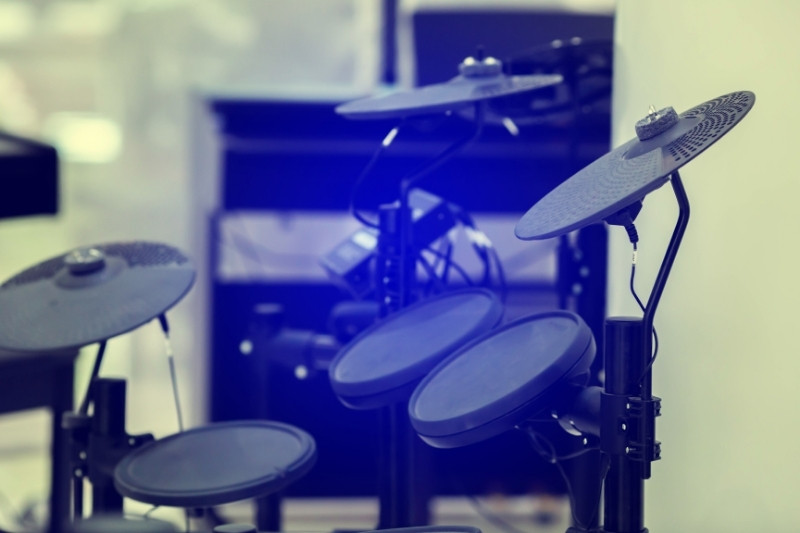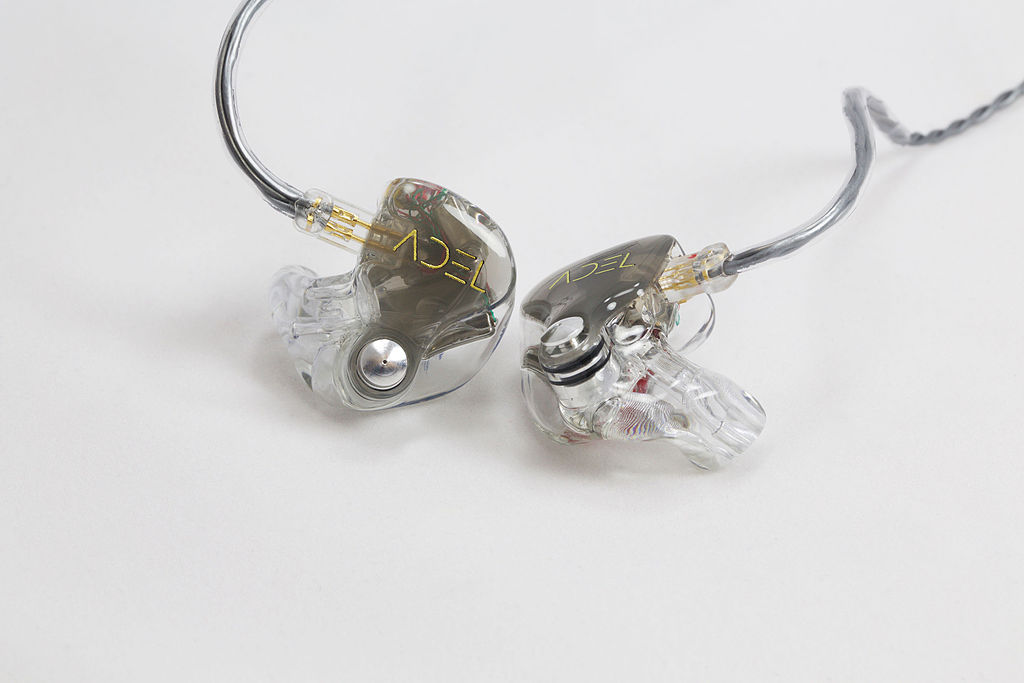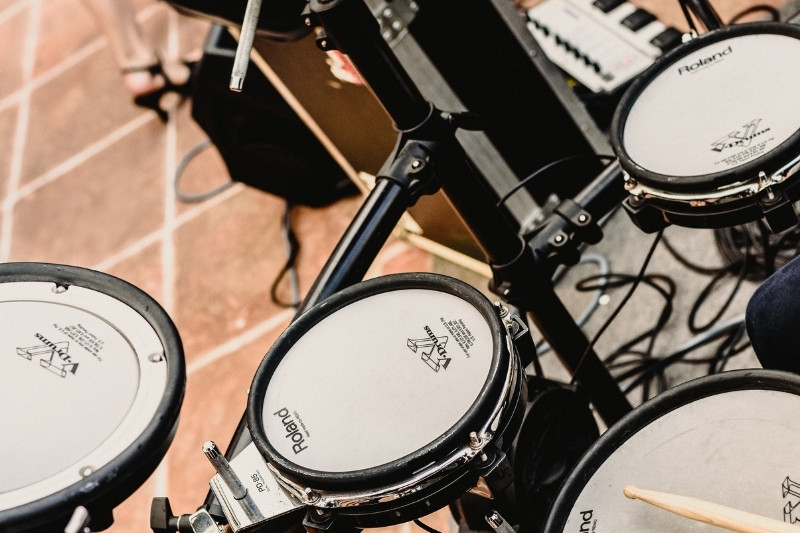Do You Need An Amp To Play Electronic Drums?
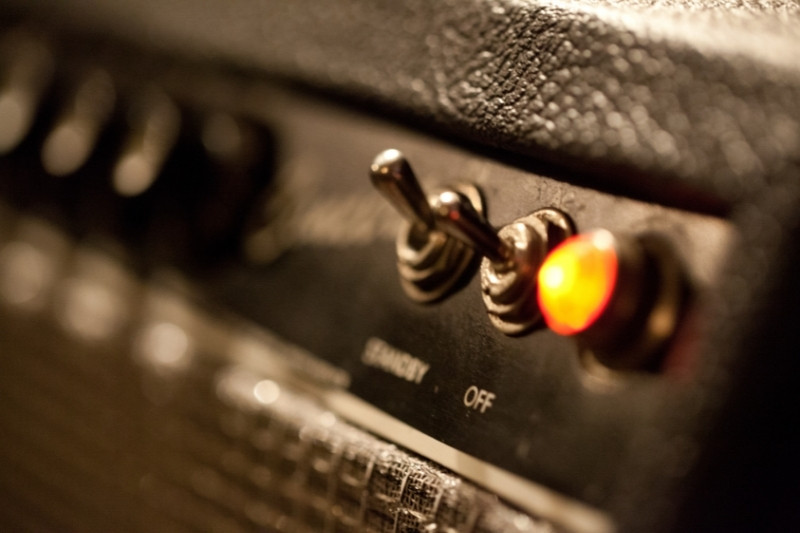
Electronic drums can be played without an amp, as they typically come with built-in headphone jacks and audio outputs. If you plan to use your electronic drums for recording or performances, you may want to consider using an amp to enhance the sound.
Contents
Types of Amps that work with Electronic Drums
If you require a drum amp for your playing, I can give you some excellent options to consider. Electronic drums can work well with two main types of amps:
Purpose-built Electronic Drum Amps and Monitors
- Pros: tailored for electronic drums, better low-frequency response, accurate sound reproduction
- Cons: less versatile, limited inputs and effects
Drum amps are designed specifically for electronic drums, providing a better low-frequency response and more accurate sound reproduction. They are an excellent choice for drummers who prioritize sound quality and performance.
A great drum amp that I recommend is the Roland PM-100 as it has a nice set of features and also has the right balance for practicing at home or for band rehearsals. For more examples of great drum amps, we did an article on the best drum amps and monitors. You can learn a lot more from that article so give it a read!
Keyboard Amps
- Pros: versatile, multiple inputs, built-in effects
- Cons: not specifically designed for drums, limited low-frequency response
Keyboard amps are also a popular choice for electronic drummers due to their availability, price, versatility, and multiple inputs, allowing for the connection of other instruments or devices. They often come with built-in effects, such as reverb and chorus. A great keyboard amp for electronic drums is the Behringer Ultratone K450FX as it is ideal for practice or some band rehearsals.
Alternatives to Amps for Electronic Drums
If you find that an amp isn’t necessary for your intended use of the drums, these alternatives may be suitable options for you:
Using headphones
- Pros: silent practice, no external noise, personal monitoring
- Cons: lack of ambiance, limited interaction with other musicians
Headphones are a popular choice for electronic drummers who want to practice silently without disturbing others. They allow for personal monitoring and eliminate external noise, making them ideal for practicing in shared spaces or late at night.
However, using headphones can limit the interaction with other musicians and create a lack of ambiance, as the sound is isolated to the individual drummer. A great pair of headphones that I recommend is the Vic Firth SIH2 Isolation.
Another great pair of electronic drum headphones are the Roland RH-300V. These purpose-made headphones are specifically tailored for e-drums. They’re quality-made with 50mm drivers and offer superb comfort for longer sessions.
If you’re unsure of where to begin when it comes to using headphones with your electronic drums, our guide on how to play electronic drums with headphones can be a helpful resource. Additionally, if you’re interested in learning more about drum headphones in general, be sure to check out our list of the best electronic drum headphones for more information.
Connecting to a computer or audio interface
- Pros: recording capabilities, software effects, virtual instruments
- Cons: latency issues, additional equipment required
Another option for playing electronic drums without an amp is connecting them to a computer or audio interface. This allows for recording capabilities, access to software effects, and the use of virtual instruments.
However, this method may introduce latency issues and require additional equipment, such as an audio interface and recording software. The Focusrite Scarlett 18i20 3rd Gen is a great audio interface that I highly recommend if you’re currently looking for one in the market.
If that doesn’t suit you then consider checking out my popular article on how to record electronic drums.
PA systems
- Pros: high-quality sound, suitable for larger venues, multiple inputs
- Cons: expensive, bulky, more complicated setup
PA systems are ideal for larger venues and provide high-quality sound. They often have multiple inputs, allowing for the connection of other instruments or devices. However, PA systems can be expensive, bulky, and require a more complicated setup compared to an amp.
Factors to Consider When Choosing an Amp
When selecting an amp for your electronic drums, consider the following factors:
- Power output: The power output of an amp determines its maximum volume. Choose an amp with sufficient power for your intended use, such as practicing at home, rehearsing with a band, or performing live. A great power output for a practice amp would typically be around 20-45 watts, while an amp for performing usually has around 80-100+ watts.
- Speaker size: Larger speakers generally provide better low-frequency response and overall sound quality. However, they may also be heavier and less portable.
- Portability: Consider the size and weight of the amp, especially if you plan to transport it frequently for gigs or rehearsals.
- Inputs and outputs: Ensure the amp has enough inputs for your electronic drums and any additional devices you may want to connect, such as a metronome or backing tracks. Outputs are essential if you plan to connect the amp to a PA system or recording equipment.
- Built-in effects and EQ: Some amps come with built-in effects, such as reverb and chorus, which can enhance the sound of your electronic drums. An EQ allows you to adjust the tone and balance of your drums for optimal sound quality.
For a more detailed approach to help you decide what amp to get, check out the article that I also previously mentioned on the best drum amps and monitors to further help you decide on what is the best-suited amp for you.
Conclusion
To summarize, the necessity of an amp for playing electronic drums depends on the intended use. Headphones and audio interfaces can be used for silent practice and recording, while an amp is essential for live performances and rehearsals. When choosing an amp, consider the factors that we discussed in the article to help you in your search. Make sure to have fun and enjoy the process of discovering the ideal gear for yourself. Best of luck!

